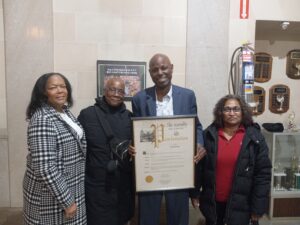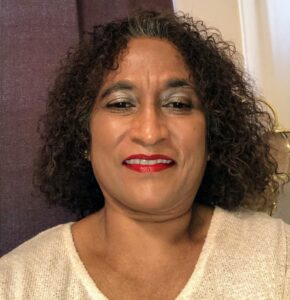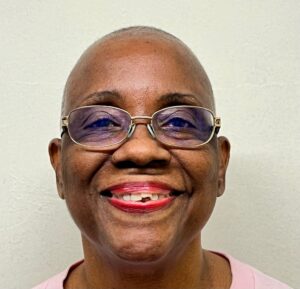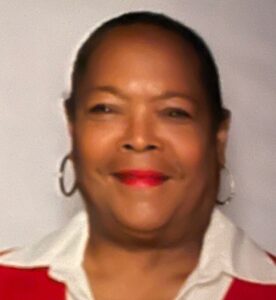‘It’s good to help’ — Community participation drives Transition Academy growth

By David Gil de Rubio | dgilderubio@mec.cuny.edu
Established in 2017, the Medgar Evers College (MEC) Transition Academy was created to be a support system for students experiencing homelessness, transit and/or food insecurity issues. One of its current functions is to run the Cougar Country Pantry, which offers nutritionally balanced and nonperishable food from Monday to Wednesday and is located on the second floor of the Student Services Building located at 1637 Bedford Avenue.
Dr. Waleek Boone founded this crucial support system back in 2017. And while he has a part-time employee to help with staying on top of this much-needed resource, it is a collection of volunteers and interns who keep all of this running.

Key to all of this are a trio of community members who freely give of their time — Devi Rouse, Beverly Slater and Patricia Smith. Their crucial contributions are something Boone readily acknowledges.
“I do not do this work alone,” he said. “I wouldn’t be able to do the work without the community partners.”
All three are local residents and have been working alongside Boone and his efforts with the Transition Academy food pantry since the pandemic. The common thread each has is a long history of public service, deep religious conviction and the desire to give back to those in need — in this case, Medgar Evers students.
Having worked as a nurse for four-plus decades, Slater’s career has found her caring for patients in a wide range of settings — Columbia Presbyterian Medical Center, Lenox Hill Hospital and Planned Parenthood to name a few. She even had one stint serving as a school nurse. Her connection to the Transition Academy came via a partnership with the D.R.E.A.M. (Developing, Restoring, Enabling, Advancing Many) Foundation, which is administered by the Community Council for Medgar Evers College, Inc.
What most impressed the Harlem native when she started volunteering at the Transition Academy was the wide range of services offered in one place.
“One of the things that I respect about Dr. Boone is how inclusive he made the Transition Academy,” she said. “You come here, you come to see his staff and they do an extensive intake to identify all of the barriers from transportation, housing and food to if you need tools like laptops. He handles from that one department. In a lot of the other universities, you have to go here to talk about housing or there to talk about other needs and in the process, re-traumatizing yourself because you have to tell the story over and over.”

For Smith, the path to pitching in at the Transition Academy started when friend Debby Rouse, a fellow parishioner at St. Francis of Assisi-St. Blaise on Nostrand Avenue, got her involved. A Panamanian immigrant who came to the United States on September 12, 1960, Smith has spent a career giving back via a number of organizations including Life Lines Community Arts Project in Sunset Park and the Cypress Hills Local Development Corporation/Beacon Family Place.
Transition Academy gives Smith a chance to be part of the larger role Transition Academy plays in bettering needy students’ lives.
“It’s important for us as so-called community leaders to do what we can to make these young people transition out of the muck that they’re in over to something that makes sense and allows them to see the light at the end of the tunnel,” she said. “To me, that’s the importance of having something similar to the Transition Academy in all neighborhoods and not only in Crown Heights. Bedford Stuyvesant, Flatbush, East Flatbush, Brownsville, Cypress Hills — wherever you have a lot of minorities residing.”

Rouse’s pathway to working with Transition Academy came not surprisingly through volunteer work she did with Catholic Charities by way of the food pantry at the Crown Gardens Community Center. The Trinidadian widow can be seen working alongside Boone on the first Friday and last Tuesday of the month. And like her fellow volunteers, Rouse humbly submits to this calling and on many levels, feels she gets as much from it as she puts into volunteering and has deep admiration for what the Transition Academy founder has created.
“It is very important for the community on the whole to know that what Waleek does is well-executed,” she said. “He is very kind and his basic interest is focused on the kids and their well-being along with that of the community. I think this is one of the greatest reasons that he [and the program] have risen to the top. I do what I’m supposed to do. I work with Catholic Charities and even from back home — community work and helping others is our main [mission].
“It’s good to help as long as we are here.”